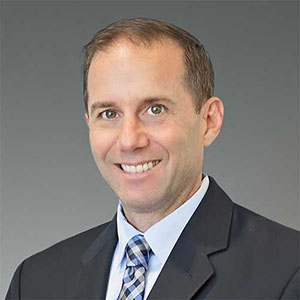
What to Know Before Rolling Out Real-Time Location Solutions Across Your Healthcare System
Some say the healthcare community is a laggard when it comes to location solutions. Manufacturers, retailers and even the NFL have been using RFID to track and trace supplies, equipment, and people for years. However, new regulations are giving hospital leaders more reasons to prioritize RTLS projects, as are labor shortages, supply chain constraints and patient calls for better care.
In fact, three-quarters of global hospital leaders say they plan to rollout location technologies such as RFID in the coming months to better track equipment and specimens and improve patient flow and security. They are also turning to real-time location systems (RTLS) to create more dynamic workflows and improve staff efficiency, safety, and compliance, according to feedback received in Zebra’s latest Healthcare Vision Study.
That means a lot of people within the healthcare community are going to be moving really fast to figure out which RTLS is best for them and understand the potential return on investment (ROI). This includes IT, clinical and operations teams that may only be familiar with barcode-based track and trace technologies.
There is also going to be a push to balance regulatory compliance requirements with other operational needs, such as more automated workflows and decision-making capabilities, which I suspect will lead to conversations about priorities. Which technology deployment needs to take precedence and why? How do location solutions need to interface with the electronic medical record (EMR), room management and inventory systems driving clinical and operational actions? What are the risks of rolling out RTLS without making other technology infrastructure updates first?
So, I asked Wayne Miller, one of Zebra’s EMEA healthcare leaders, as well as Johnny Ong, who is a registered nurse (RN) and serves as Zebra’s healthcare practice lead in APAC, to join me for a roundtable discussion about the trends, opportunities, best practices and key learnings unfolding in healthcare specific to RTLS.
Hear Their Front-Line Perspective and Advice to Decision-Makers
Wayne has been working closely with the UK National Health Service (NHS) and others across EMEA on healthcare modernization projects for many years, to include the Scan4Safety program and Falsified Medicines Directive (FMD) compliance. More recently, he has shifted his focus exclusively to initiatives that use RTLS to solve problems for the healthcare community. As he will tell you, one of the biggest mistakes you can make is to commit to a certain technology “solution” without first figuring out what it really is that you’re solving for. In other words, he’s a “workflow-first” evangelist.
And Johnny, who has been on the front lines of healthcare for many years, is a staunch advocate of RTLS and, more importantly, information system interoperability. He has personally seen the consequences of siloed data systems, to include delayed patient care. And he knows that if hospitals don’t go back to basics – if they skip fundamental steps in the healthcare maturity model – then patient care will suffer as much as hospitals’ bottom lines.
So, I spent 30 minutes talking with Wayne and Johnny about:
The current regulatory climate in different countries and how mandates are driving healthcare leaders to go “beyond the barcode” to facilitate track and trace.
Just how much the pandemic accelerated the adoption of RFID and other location solutions in clinical settings.
The types of technologies commonly used for healthcare RTLS applications (as compared to manufacturing, retail or football player tracking).
What RTLS really offers healthcare practitioners, administrators, support staff and patients beyond “a dot on a screen.”
During our discussion, they also shared:
Real-world examples of what happens when clinicians and other hospital staff don’t have the luxury of real-time location insights during patient care.
How to use RTLS to solve for common healthcare business problems, beyond compliance mandates, and why you can’t commit to any RTLS investments without first understanding the clinical challenges and workflows that need addressing.
What healthcare providers can do to better prepare and organize RTLS implementations, and common missteps that could diminish the ROI.
The level of interoperability needed between information systems and edge technologies for RTLS to be impactful.
The key learnings and outcomes from the Scan4Safety program in the UK, and how they should be applied by all healthcare providers around the world who are moving to RFID for track and trace.
Why healthcare has been slow to adopt RTLS even though the benefits far outweigh the risks (or cost).
How to build the business case – and prove the value proposition – for RTLS in healthcare, including steps that can be taken to prove RFID’s now-critical role in the orchestration of efficient, automated, safety-first workflows.
TUNE IN NOW TO FIND OUT WHAT YOU NEED TO KNOW ABOUT RTLS IN HEALTHCARE
###
These additional insights might be helpful as you start (or continue on) your healthcare digitalization journey:
Forget Everything You Know About Healthcare Real-Time Location Solutions (RTLS)
The Search is On for a Better Way to Locate Hospital Staff, Patients and Visitors
We Must Urgently Rethink How Pharmaceutical Supply Chains are Managed and the Role RFID Plays
The Pharma Industry Isn’t Ready for the November 2023 DSCSA deadline and the FDA Isn’t Budging.
Ask the Expert: What’s the Difference between EPCIS and EPCIS 2.0?
Why RFID Should Be Seen As 'Enabling,' Not 'Disruptive,' Of Business

Chris Sullivan
As the Global Healthcare Practice Lead for Zebra Technologies, Chris Sullivan advocates for the role technology plays in improving the quality, safety, and efficiency of patient care, and for the value of unifying best practices from around the world to improve healthcare globally. He has over 20 years of healthcare industry executive leadership experience in corporate strategy, business development, and marketing.
He maintains an acute understanding of the needs of patients and their caregivers coupled with robust technical knowledge of healthcare operations and is well-versed on a myriad of healthcare technology trends, including patient identify, clinical mobility, real-time location solutions, supply chain, and the physical environment of care. Through his global lens, Mr. Sullivan can speak to any regional healthcare issue that is imperative to connecting best practices across borders. He focuses on what’s possible to positively transform global healthcare, basing his perspective on the ever-important Voice of the Customer (VoC).
Mr. Sullivan is a sought-after industry speaker, healthcare customer board member and U.S policy advocate on Capitol Hill. He is on the board of directors for Swedish Covenant Hospital, a board member of the Healthcare Supply Consortium, a member of the GS1 Healthcare Organization and the board chairman for Healthcare IoT Community. He received his MBA from Golden Gate University.






